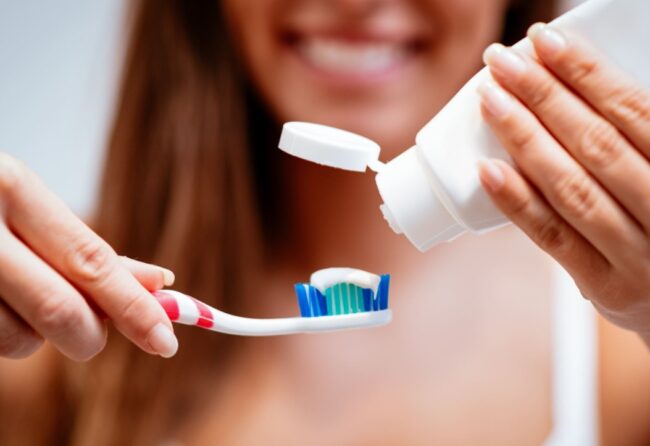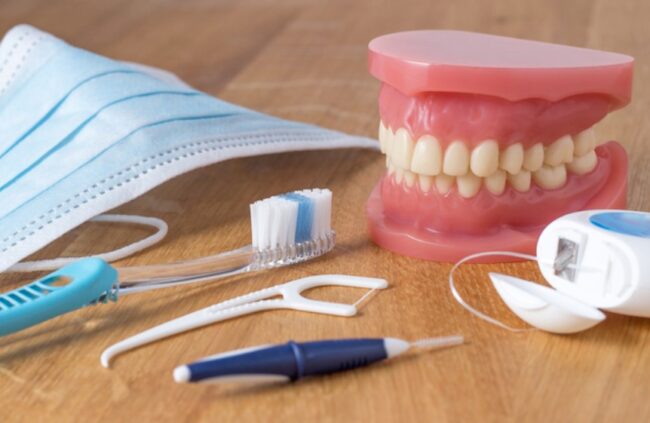While we all know the importance of good oral hygiene in terms of maintaining dental health, many don’t realize how bad habits, when it comes to brushing, can cause a range of other health concerns, many of them serious. Below are some of the conditions that can result from allowing bacteria to build up in the mouth and how to prevent this from happening.
Heart Disease

Those with poor dental health are about twice as likely to develop heart disease and arterial narrowing; this is a direct result of bacteria entering the bloodstream via the gums. This bacteria can cause clogs in the arteries, leading to possible heart attacks. The same bacteria, if it becomes clogged in the carotid artery, can increase the risk of stroke significantly, too.
Respiration Problems
The bacteria that can enter the bloodstream through the gums in those with poor dental hygiene can also travel to the lungs, affecting an individual’s respiration. This can have a particularly negative impact on those with pre-existing conditions that affect breathing.
Both pneumonia and bronchitis have been found to be more common in those with bad dental hygiene, and it’s been found to increase the risk of chronic obstructive pulmonary disease (COPD), too.
Effect on Diabetes

Periodontal disease and diabetes are closely connected, with each issue potentially exacerbating the other. Diabetes often results in the patient being at a higher risk of general infection, which makes them more susceptible to gum disease and the associated bacteria that subsequently enter the bloodstream. In turn, it has been suggested that periodontal disease can make it more difficult for those with diabetes to control their blood sugar level.
Other Issues
Those with poor levels of dental hygiene will also be more at risk from erectile dysfunction, endocarditis, kidney disease, and cancer and have a higher chance of developing Alzheimer’s Disease and suffering from associated memory loss. Recent research concluded that the cause of the latter was likely to be inflammation caused by gum disease spreading to the brain, which in turn can destroy brain cells.
How To Avoid Problems

The easiest way to make sure that your dental hygiene habits aren’t putting you at a higher risk of developing any of the above conditions (or exacerbating existing health problems) is to think about your daily dental routine to get it as effective as possible.
You can use either a manual or an electric toothbrush; they will require replacing, or the heads replacing for the latter, regularly, and this should be done at the first sign of any deterioration of the brush or bristles. It is important to use fluoride toothpaste to guard against plaque and bacteria.
Teeth should be brushed twice a day for approximately two minutes each time. Consider incorporating floss or using interdental toothbrushes to achieve a more complete clean and to ensure that no particles are left between the teeth. You could also use mouthwash to lift and swill away any bacteria that has been removed from the surface of the teeth and to provide further protection against plaque and bad breath.
Regular trips to your dentist are vital to maintaining good dental hygiene; your dentist will be able to spot any gum disease or tooth decay present and treat this to get things back on track and prevent you from being more liable to developing any of the serious conditions outlined above. Your dentist can also advise you on how to use, for example, floss or techniques for better brushing.
Once your dental hygiene routine is on top form, you may want to consider a whitening treatment, especially if you are self-conscious about your smile or have staining on your teeth. There are many options available to go about whitening the teeth; if you would prefer a more natural way to achieve this, then read Burst reviews here for more information on their special toothpaste and whitening strips, which are backed by a ninety-day money-back guarantee.
The focus with Burst is on natural ingredients, and their products contain peppermint and coconut oil to help users get a gleaming smile without the need for as many chemicals; they’re designed, too, for those who may be prone to sensitivity when using standard tooth whitening treatments.
Bad oral health can be improved by making a conscious effort to develop healthy dental hygiene habits. Aside from practicing proper dental hygiene habits, frequently consulting and visiting a professional dentist in franklin tennessee, or other dental clinics in your area can also help improve and maintain good oral hygiene. Certified and experienced dentists can make proper assessments of your overall oral health and perform the necessary procedures to address the root cause of your dental concerns.
Starting Early
To best ensure that your children grow up with healthy dental hygiene habits, it’s important to emphasize the importance of good cleaning from as early an age as possible. An easy way to do this initially is to make sure your very young child observes you cleaning your teeth regularly so that, before they even have their own full set of milk teeth, they will recognize it as a standard daily practice.
As soon as your baby cuts her first milk tooth, you can start taking care of it. Buy an extra soft toothbrush designed for babies, and simply brush the tooth (or first few teeth) very gently, with just water on the brush. This is simply a great way to get your little one used to the feeling of the brush and reinforces the idea of brushing as a healthy habit.
Similarly, start taking your child to the dentist at as young an age as possible so that they become accustomed to the chair and the general process, making them much less likely to suffer from dental anxiety as they get older.
When teaching children to brush, it’s important to supervise them, and you may well need to do this up until the age of eight (and possibly even beyond this) to be sure that they are brushing properly and to minimize the risk of their swallowing the toothpaste.
Using timers is one way of encouraging your kids to brush for the full two minutes; distraction can work well, too: find a favorite song (obviously not a Meatloaf track) and get them to brush in time to the music until it ends. After your child has brushed, you should do a final ‘check’ (i.e., brush) until you are confident that they have developed the skills, and patience, to brush properly.
The Essential Role of a Balanced Diet in Promoting Strong Teeth and Gums
A balanced diet, abundant in essential nutrients such as calcium and vitamin D, plays a pivotal role in maintaining the health of your teeth and gums. Calcium, primarily found in dairy products, fortified plant-based alternatives, and leafy greens, is fundamental for the development and strength of teeth. It contributes to the mineralization of tooth enamel, protecting against decay and erosion. Vitamin D, often synthesized through exposure to sunlight, aids in the absorption of calcium, ensuring it reaches your teeth and bones effectively. Together, these nutrients form the foundation for a resilient and healthy oral structure.
Avoiding the Pitfalls of Excessive Sugar Consumption for Optimal Dental Wellness
Excessive sugar consumption is a well-documented contributor to dental problems, and understanding its significance is crucial for preserving your oral health. Sugars, particularly those found in sweets, sugary drinks, and processed foods, provide fuel for harmful bacteria in your mouth. These bacteria produce acids that corrode tooth enamel, leading to cavities and decay. Minimizing your sugar intake, especially between meals, can significantly reduce your risk of dental issues. Opt for sugar-free alternatives and read food labels to make informed choices, safeguarding your teeth and gums from the detrimental effects of excessive sugar consumption.
Good Dental Hygiene For Life

While poor dental hygiene can lead to a range of serious health problems, getting into a healthy oral health habit is easy and may make a life-long difference to your health. Your dentist will be able to fully discuss with you a treatment plan to resolve any dental issues you have and to support you in developing a new practice, which could be just as important to your body and mind as it is to your teeth.
